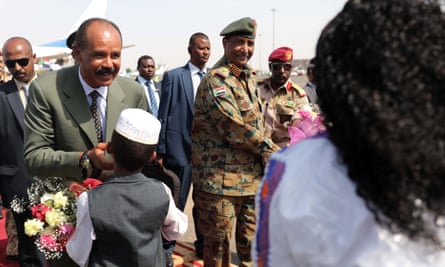Ethiopia’s prime minister Abiy Ahmed has promised military victory in Tigray. He says he will capture the capital, Mekelle, and the leadership of the Tigray People’s Liberation Front (TPLF), which he calls a criminal junta. If he succeeds, it will be a pyrrhic victory – prospects for peace, democracy and protection from famine in Ethiopia will be set back a generation.
There are artillery barrages, airstrikes, armoured assaults. The Ethiopian army announces a Tigrayan town captured every other day and this week it plans to surround Mekelle. But there’s something missing. We’re not seeing pictures of prisoners of war, recovered military equipment, or newly-captured towns with local people welcoming their liberators. Perhaps the TPLF evacuated the towns and retreated to the mountains. Or maybe there are things that Ethiopian TV doesn’t want the world to see.

Abiy refuses to call it war–, saying this is an operation to enforce constitutional order and the rule of law. He says that the TPLF started it by overrunning army bases and slaughtering non Tigrayan officers. This may turn out to be true, but it is a war under any recognisable definition, and whatever Abiy’s initial justification, he will be judged according to the same international legal code as his adversaries. If his forces commit war crimes, the argument that the other side started it won’t hold water in a court.
As the conflict intensifies, it generates its own terrible logic. If the Ethiopian army triumphs in Mekelle, Abiy won’t be declaring peace. For the Tigrayans, it is likely to be the beginning of the “third woyane” – the first being the 1943 rebellion against Haile Selassie , put down by the RAF bombing Mekelle from its base in Yemen, the second being the TPLF insurgency that began in 1975, running for 16 years against a military government that announced its “final offensive” every year until the rebels defeated him.
This time it might be worse. Hostilities have spread to civilians, and there is reason to fear inter-communal pogroms on a scale that Ethiopia hasn’t seen before.
Not only Tigrayans are fearful. So too are the historically marginalised Oromo, Ethiopia’s largest ethnic group. Three years ago, Oromo protests brought the country to a halt, and the crisis was resolved with Abiy Ahmed, an –Oromo-appointed prime minister. The Oromo demands included jobs, freedoms, and a share in political power commensurate with their numbers.

The federal constitution is a delicate compromise wrought in the 1990s with the aim of bringing fissiparous armed movements into agreement on keeping Ethiopia together. The TPLF was then the leading member of the ruling coalition , but much of the inspiration came from Oromo leaders. The constitution grants self-rule to ethnolinguistic groups and, controversially, right of self-determination. It is problematic, and the TPLF abused it, but it is treasured by peoples who won equal recognition for the first time in Ethiopia’s history–.
Many of the country’s historic political and cultural elites, drawn from the Amhara, see this as a betrayal of Ethiopia’s long heritage as a unitary state. Over the last year, Abiy has shifted his power base to embrace this agenda. As a former charismatic Pentecostal preacher, his skillset is well-suited to crowd pleasing. He seems to put his faith in God and the power of decisive action. He is energetic at dismantling institutions but less so at building them. Abiy was ripe for co-option by others with a strategy, notably a group of Amhara politicians who saw Abiy as useful.
Oromo and Tigrayan alike smelled a return to imperial-style domination. During the past year, Abiy has turned against Oromo leaders, notably arresting Jawar Mohammed, founder of the Oromo Media Network, on terrorism charges. Some of those who nominated Abiy for the Nobel peace prize last year now regret their endorsement.
Abiy won for making peace with Eritrea, ending 18 years of a cold war between the two countries. In comparable cases, the Nobel committee has shared the award between signatories. This time, they didn’t honour Eritrean president Isaias Afewerki, the antithesis of a reformer running a prison country without constitution, independent mediaor political parties.

For Afewerki, the deal with Abiy was a security pact against the TPLF, which he views as his principal adversary. He sees Ethiopia as fragile, destined to fragment like Yugoslavia, and has missed no opportunity to hasten that along. Nonetheless, Abiy adopted Afewerki as patron and adviser.
Afewerki no doubt relishes seeing his two enemies, the Ethiopian army and the TPLF, destroy one another. He sits innocently on the sidelines, while becoming the kingmaker of the Horn of Africa.
The African Union (AU) has appointed mediators for Ethiopia. Abiy has rebuffed them, promising a military fait accompli. The AU has no chance without backing from great powers, but the US assistant secretary of state, Tibor Nagy, asserts confidence in Abiy and Afewerki. It’s so crass that some Washington veterans wonder if the Trump administration is deliberately leaving its successor insoluble foreign policy crises.
Every day counts. Each day of killing and starvation and every broadcast of divisive rhetoric in Ethiopia’s media make it harder for Ethiopians to climb out of the abyss into which their leaders are plunging them. Every international tool of condemnation and pressure is now warranted.









